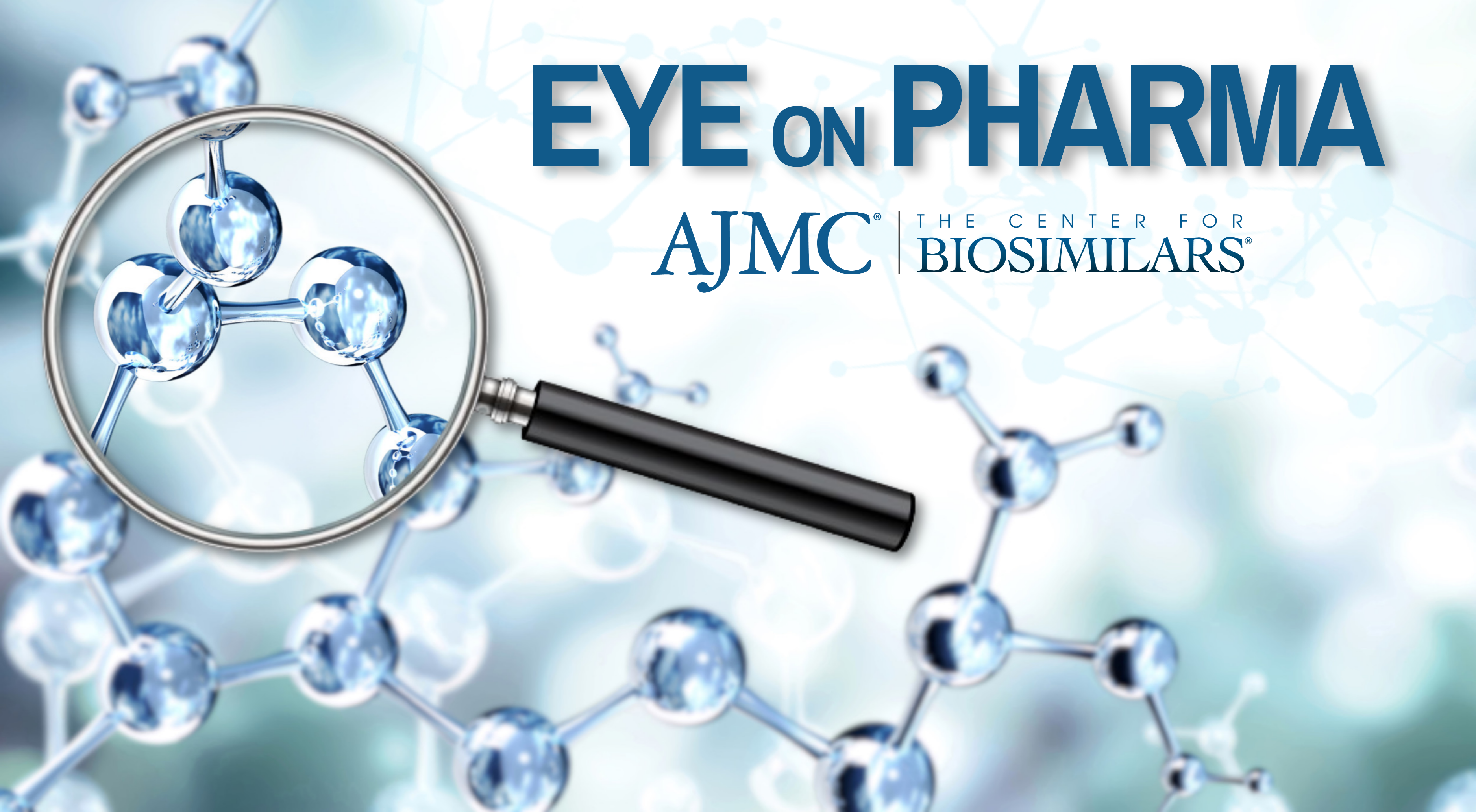- Bone Health
- Immunology
- Hematology
- Respiratory
- Dermatology
- Diabetes
- Gastroenterology
- Neurology
- Oncology
- Ophthalmology
- Rare Disease
- Rheumatology
Eye on Pharma: Korean Drugmakers’ Impact in Europe; New Denosumab, Eculizumab Deals
Korean drugmakers hold over 50% market share in the 6 best-selling biosimilar markets, 2 companies sign exclusive licensing partnership for a denosumab biosimilar, and 2 others join forces for an eculizumab biosimilar.
Korean drugmakers hold over 50% market share in the 6 best-selling biosimilar markets, 2 companies sign exclusive licensing partnership for a denosumab biosimilar, and 2 others join forces for an eculizumab biosimilar.

Korean Drugmakers Clinch Majority Market Share
The Republic of Korea's top drugmakers, Celltrion and Samsung Bioepis, have captured over 50% of the European biosimilar market in 6 major blockbuster categories, achieving a combined market share of 53.5% by third quarter 2024, according to a report from Bio & Pharma.1
The drug categories include infliximab (Remicade), rituximab (Rituxan), adalimumab (Humira), trastuzumab (Herceptin), bevacizumab (Avastin), and etanercept (Enbrel). The finding marks steady growth from their 45.0% share in 2022 and 48.9% in 2023, as previously reported by global pharmaceutical market research firm IQVIA.
Samsung Bioepis leads the European etanercept biosimilar market with a 49.2% share, outperforming mega American and European companies like Pfizer and Sandoz. In the adalimumab market, the world's largest autoimmune treatment segment, the 3 Korean firms captured a 26.5% share, surpassing AbbVie’s Humira, which was deemed the second top-selling drug of all time in 2018.2 Celltrion also leads in bevacizumab and trastuzumab, with combined shares reaching 40% to 45%. Additionally, Samsung Bioepis excels in emerging segments like ustekinumab and eculizumab.1
Europe's biosimilar-friendly policies make it a "land of opportunity," fostering significant growth, with biosimilars now comprising over 80% of its pharmaceutical market. The global biosimilar market is projected to grow at a 17.3% annual rate, reaching $107.7 billion by 2030. Despite Europe’s advances, the Republic Korea lags with only 35% biosimilar penetration, prompting calls for greater governmental support.
New Biosimilar Partnerships
GlycoNex, a biotechnology company specializing in glycan-directed cancer immunotherapies, has entered a licensing agreement for its denosumab biosimilar, SPD8, marking a key milestone in its global expansion strategy.3 The agreement grants the undisclosed licensee rights to develop, obtain regulatory approval, and commercialize SPD8 in a designated market, with milestone payments tied to its progress.
In approved, SPD8, a biosimilar referencing Prolia and Xgeva (denosumab), would be used to treat osteoporosis in postmenopausal women and skeletal-related events in patients with cancer. Following successful phase 1 trials demonstrating safety and pharmacokinetic equivalence with reference denosumab, a phase 3 trial evaluating SPD8 commenced in December 2024.
Originator denosumab, which generated $6.1 billion in global sales in 2023, reflects rising demand driven by an aging population and increased cancer prevalence, which GlycoNex said presents significant market potential for SPD8.
Additionally, Samsung Bioepis and Teva Pharmaceutical Industries have announced a licensing, development, and commercialization agreement for Epysqli (eculizumab-aagh), Samsung Bioepis' biosimilar referencing Soliris (eculizumab), in the US.4 Samsung Bioepis will handle the development, regulatory registration, manufacturing, and supply, while Teva will oversee US commercialization. Financial details were not disclosed.
Epysqli, a complement inhibitor, was approved by the FDA in 2024 for the treatment of rare diseases, including paroxysmal nocturnal hemoglobinuria (PNH), atypical hemolytic uremic syndrome (aHUS), and generalized myasthenia gravis (gMG) in AchR antibody-positive adults.5 The biosimilar has also been approved for the European Union and Republic of Korea.
References
1. Ahn D-K. Korean drugmakers control more than half of European biosimilar market. Bio & Pharma. January 2, 2025. Accessed January 7, 2025. https://www.kedglobal.com/bio-pharma/newsView/ked202501020006
2. Liu A. From old behemoth Lipitor to new king Humira: Best-selling U.S. drugs over 25 years. Fierce Pharma. May 14 ,2018. Accessed January 10, 2025. https://www.fiercepharma.com/pharma/from-old-behemoth-lipitor-to-new-king-humira-u-s-best-selling-drugs-over-25-years
3. GlycoNex announces licensing agreement for SPD8 biosimilar. Press release. GlycoNex; January 6, 2025. Accessed January 8, 2025. https://www.prnewswire.com/news-releases/glyconex-announces-licensing-agreement-for-spd8-biosimilar-302342674.html
4. Samsung Bioepis and Teva enter into a strategic partnership for commercialization of Epysqli® (eculizumab-aagh) in the United States. Press release. Samsung Bioepis; January 10, 2025. Accessed January 10, 2025. https://www.globenewswire.com/news-release/2025/01/10/3007693/0/en/Samsung-Bioepis-and-Teva-Enter-into-a-Strategic-Partnership-for-Commercialization-of-EPYSQLI-eculizumab-aagh-in-the-United-States.html
5. Jeremias S. FDA approves Epysqli as second Soliris biosimilar. The Center for Biosimilars®. July 22, 2024. Accessed January 10, 2025. https://www.centerforbiosimilars.com/view/fda-approves-epysqli-as-second-soliris-biosimilar
Newsletter
Where clinical, regulatory, and economic perspectives converge—sign up for Center for Biosimilars® emails to get expert insights on emerging treatment paradigms, biosimilar policy, and real-world outcomes that shape patient care.
